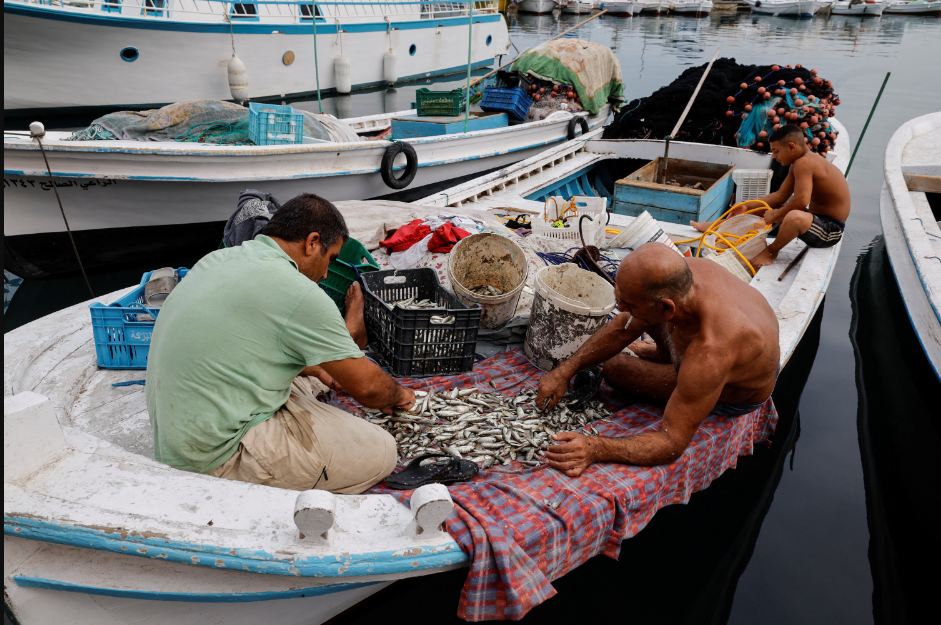Lebanese boats warned off fishing areas amid border clashes
Tyre (Reuters) – Fishermen in the Lebanese city of Tyre are among those counting the costs of war in the Middle East. As Israel and Hezbollah clash, it is too dangerous to sail into nearby fishing grounds.
“Already our fish were scarce. Now we have the war,” said fisherman Imad Azuzu. “If we venture a little in the sea, we do so in fear.”
His industry has been hit by the effects of the war that erupted on Oct. 7 between Israel and the Palestinian militant group Hamas. The Lebanese Shi’ite group Hezbollah – a Hamas ally – has been trading fire with Israel at the border.
While clashes have so far been largely contained to the border, fishermen say they are only venturing a few miles from Tyre, where explosions from the fighting 20 km (12 miles) away can be heard.
“The (Lebanese) army has warned us against going to southern areas like Al Bayyada or Naqoura because it’s dangerous. We are already afraid, the security situation is scary,” said Adel Abde, another fisherman.
A Lebanese security source said the fishermen were allowed to fish normally in the Tyre area but not to approach floating barriers separating Lebanese and Israeli waters.
The fishing industry employees 2,000 people in Tyre, a centre of ancient civilisation from where the Phoenicians sailed all over the Mediterranean.
At the port near the old city, small fishing boats painted bright white were tied up as fishermen loaded fish into buckets and repaired nets.
The people of Tyre can ill afford more hardship. They and the rest of Lebanon were hit by the collapse of the country’s financial system four years ago, which plunged many into poverty.
Fish and seafood production in Lebanon bring in $377 million a year, supporting more than 4,000 families, United Nations figures show.
Ibrahim Suwdan, who started fishing 40 years ago aged 10, said safety worries had deprived him of two weeks fishing – and income that would have helped get him through the winter.
The fishing boats were not putting to sea, he said, “Because people are afraid.”



